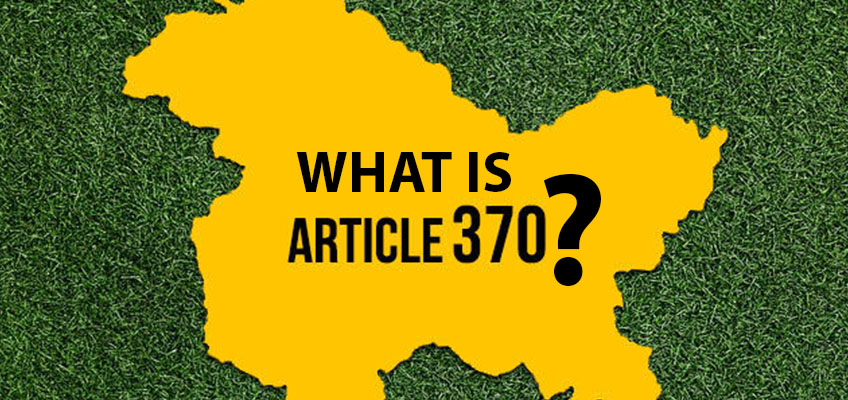Article 370 was implemented from 17 November 1952. This article gives a lot of facilities to the people of Kashmir which are not available to other citizens of India. This article clearly states that the Government of India will take initiative in all matters of defense, foreign affairs and communication. Due to article 370, Jammu Kashmir has its own constitution and its administration is run according to it and not according to the constitution of India.
Jammu and Kashmir is called Switzerland of India. The lush green valleys here, clean clean air and water make this region really like heaven. But for some years, the smell of gunpowder is coming in these cases of Kashmir. The reason behind this is the selfish politics of the separatist leaders and some legal intricacies like article 370 and article 35A.
After India gained independence, Jammu and Kashmir also became independent on August 15, 1947. During the independence of India, King Hari Singh was the ruler here, who wanted to keep his princely state independent. But on 20 October 1947, the Pakistan-backed ‘Azad Kashmir Army’, along with the Pakistani army, invaded Kashmir and seized a large part.
Under this circumstance, Maharaja Hari Singh, with the consent of Sheikh Abdullah, announced the temporary merger of Jammu & Kashmir with India on 26 October 1947 with the consent of Sheikh Abdullah to protect Jammu & Kashmir and “Instruments of Accession of Jammu & Kashmir”. Kashmir to India “.
Under this new agreement, Jammu & Kashmir handed over only three subjects: defense, foreign affairs and communication with India to India. After the signing of the agreement, the Government of India promised that “the people of this state will form the internal constitution of the state through their own Constituent Assembly and until the Constituent Assembly of the state determines the extent of governance and jurisdiction” Until then, the Constitution of India can only provide an interim arrangement about the state
With this commitment Article 370 was included in the Constitution of India. In which it is clearly stated that these provisions with respect to the state of Jammu and Kashmir are only temporary. These provisions were implemented from 17 November 1952.
Features of the Constitution of Jammu and Kashmir
Article 370 gives the following rights and facilities to the citizens of Jammu and Kashmir :-
Jammu & Kashmir ; The Union of India is a constitutional state, but its name, area and extent can be changed by the Central Government only when the State Government of Jammu and Kashmir allows it.
According to this article, the central government has to take approval from the state to implement all the laws except defense, foreign affairs and communication.
Due to this article, Jammu & Kashmir has its own constitution and its administration is run according to it and not according to the constitution of India.
Jammu & Kashmir has 2 flags. A Kashmir has its own national flag and the tricolor flag of India is the national flag here.
Citizens of other states of the country cannot buy property of any kind in this state. That is, the fundamental right to property is still in force in this state.
People of Kashmir have got 2 types of citizenship; One from Kashmir and the other from India.
If a Kashmiri woman marries an Indian, her Kashmiri citizenship ceases, but if she marries a Pakistani, her Kashmiri citizenship does not matter.
If a Pakistani boy marries a Kashmiri girl, he also gets Indian citizenship.
Generally it happens that when an Indian citizen takes citizenship of a country other than the state of India, his Indian citizenship is over. But when a resident of Jammu and Kashmir goes to Pakistan and whenever he comes back to Jammu and Kashmir, he is considered a citizen of India again.
Part 4 (Directive Principles of State Policy) and Part 4 A (Fundamental Duties) of the Indian Constitution do not apply to this state. That is, it is not necessary for the citizens of this state to respect the identity of women, protect cows and the country’s flag etc.
Insulting the national symbols (national anthem, national flag, etc.) of India in Jammu and Kashmir does not come under the category of crime.
Center only because of article 370; No law such as financial emergency (Article 360) can be imposed on the state. That is, if there is a financial crisis in India and the Government of India declares a financial emergency, then it will not make any difference to the state of Jammu and Kashmir.
Any amendment to the Constitution of India does not automatically apply to Jammu and Kashmir unless it is allowed to be implemented by special order of the President.
Center; National Emergency can be imposed on Jammu & Kashmir only in case of two conditions: war and external aggression

Leave a Comment